Pandemic
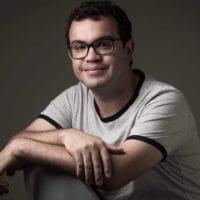
The need to carry out works on these areas that occurred due to the fact that I face daily constant neglect, neglect and abuse in Brazil and in the world.
The pandemic of the new coronavirus was a kind of magnifying glass that made the injustices, social inequalities and abuses of the political authorities more evident and visceral. The effects of the health crisis that we are going through are very uneven, the poorest end up suffering even more, as they do not have the same sanitary conditions and basic health care as a person with the best financial conditions. It is a scenario of great injustice. In addition, my country has a fascist President of the Republic in power, completely devoid of empathy and social sensitivity, dealing with public health issues with complete disregard.
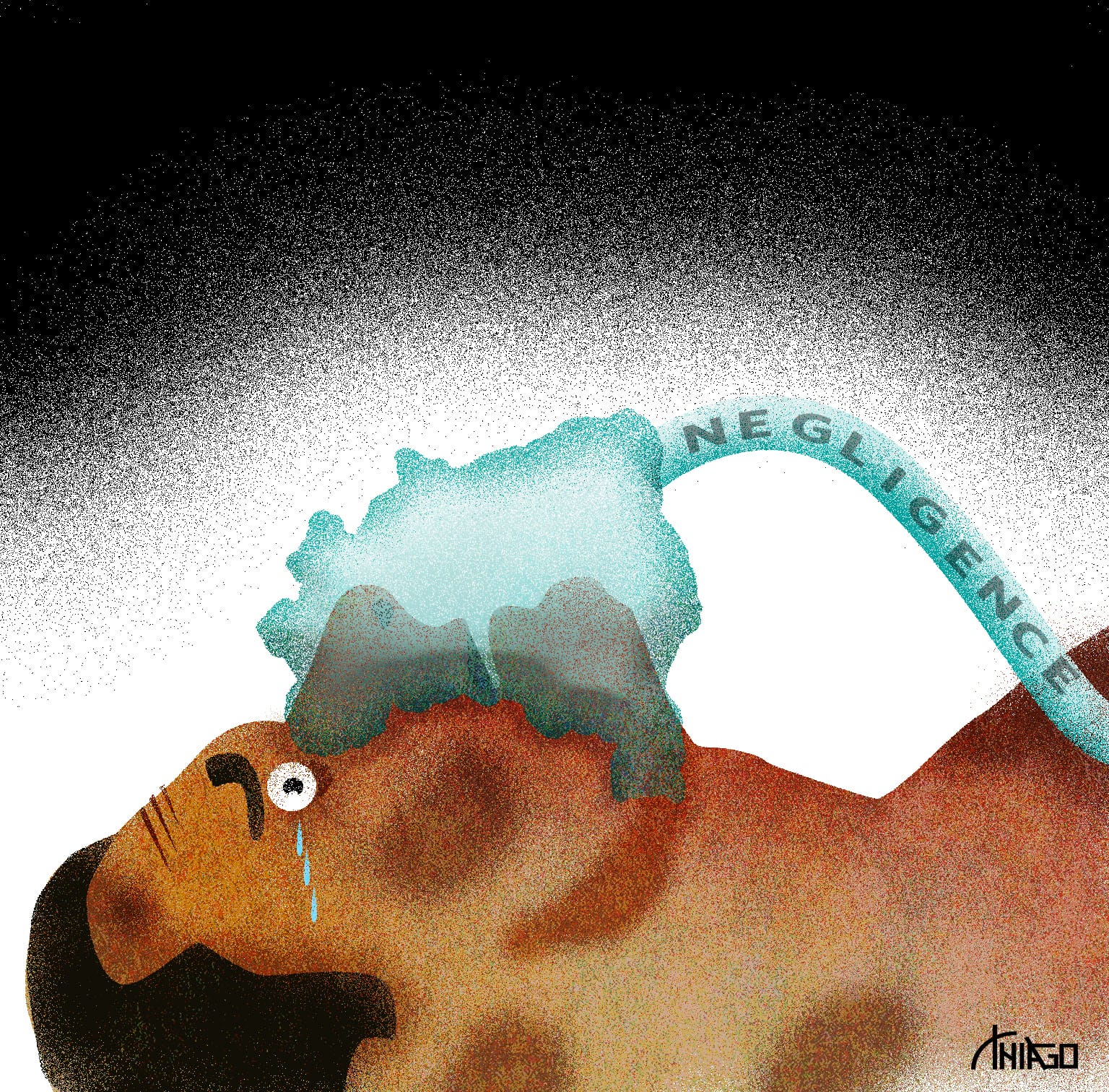
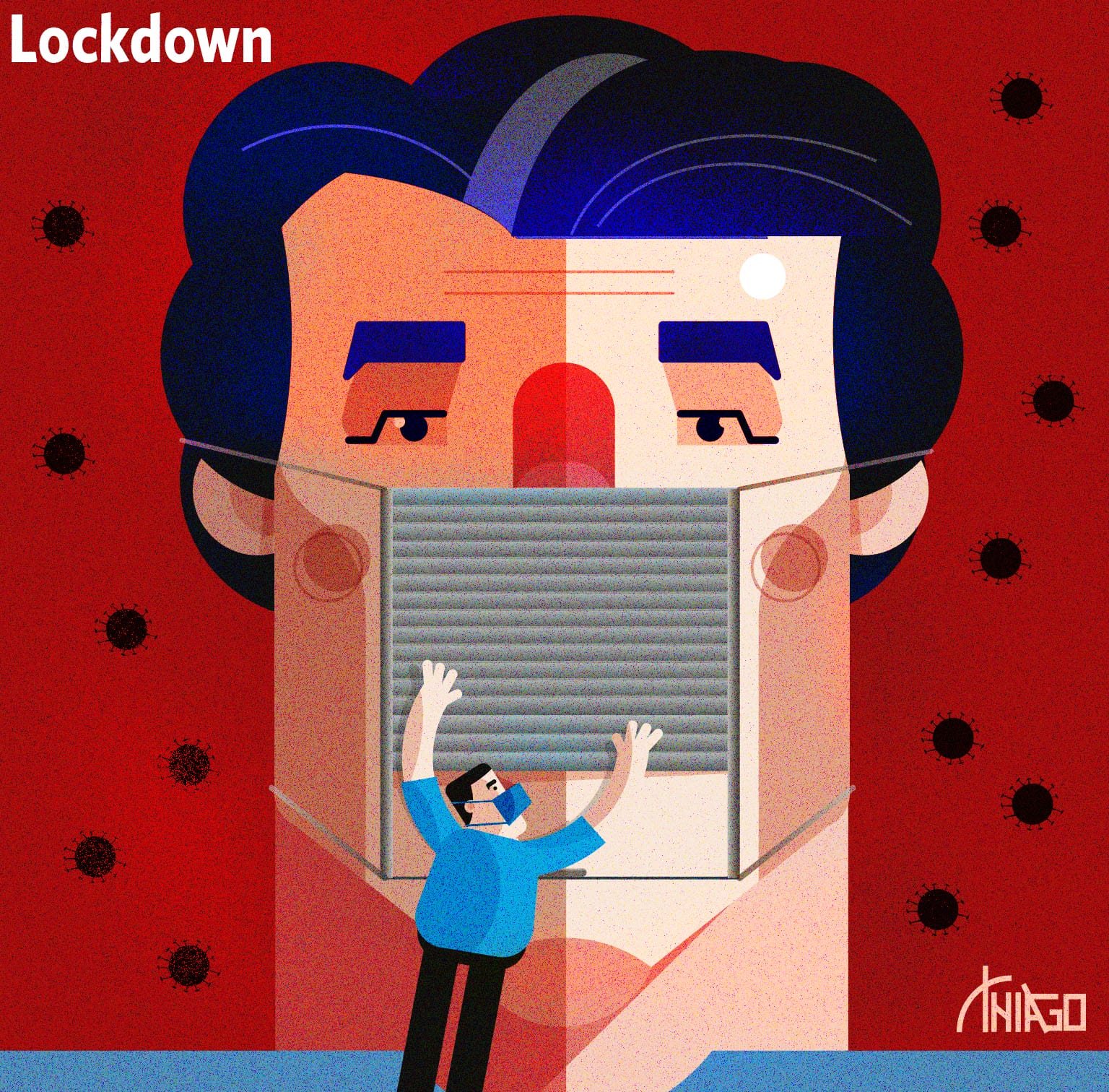
The cartoonist's work is a constant observation and analysis of reality and society, this incessant search for interpreting the political, economic and social aspects of the world is already automatic in our daily lives. It is a real catharsis. The motivation for the work "Negligence" was the neglect of the Brazilian authorities in dealing with a coronavirus pandemic. In Manaus, in northern Brazil, patients died of suffocation due to lack of oxygen equipment. A tragedy.
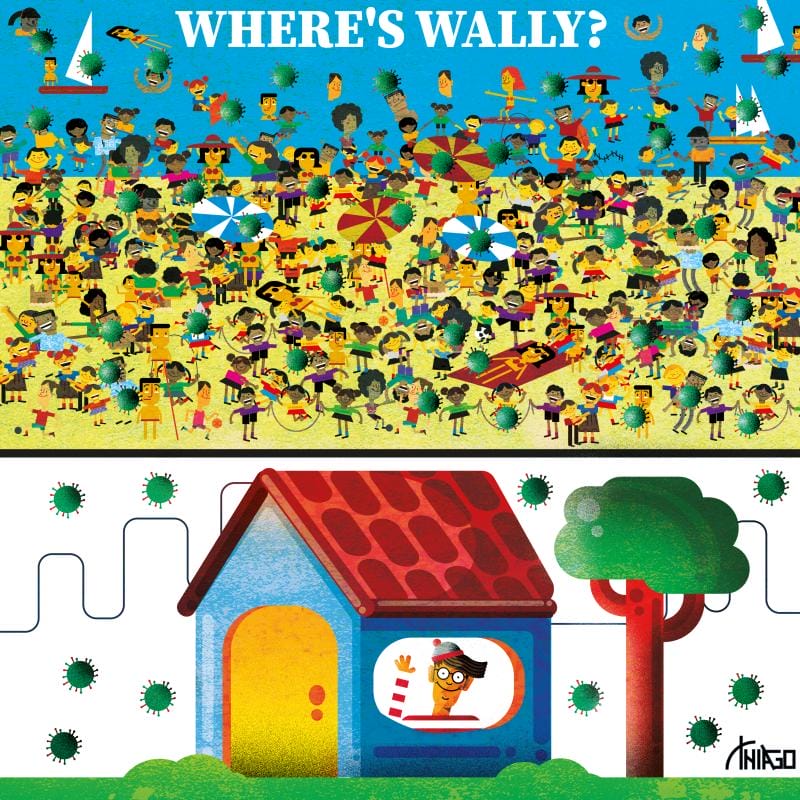
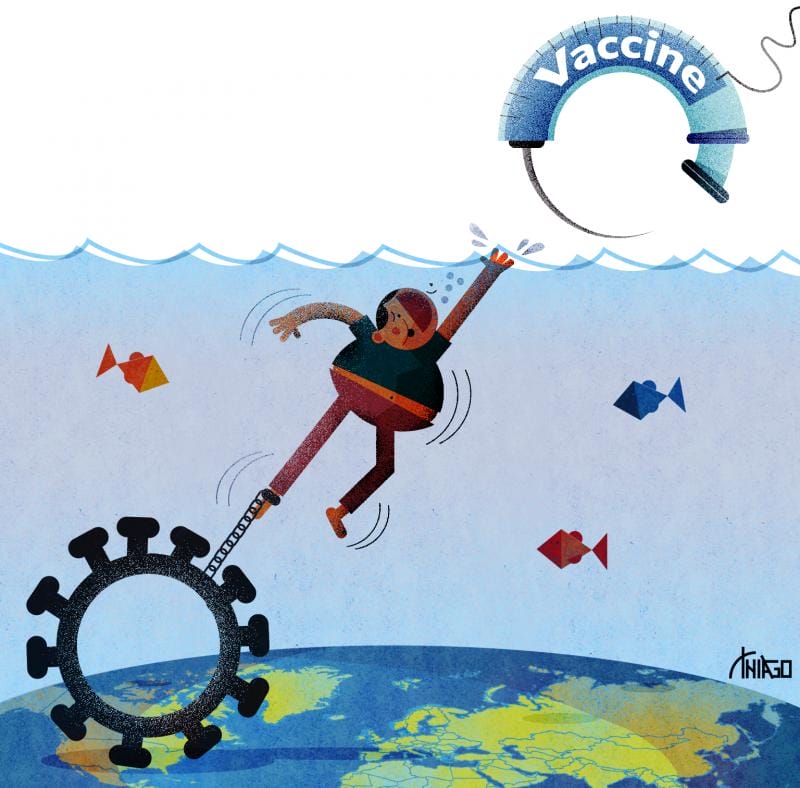
First I did the sketch and studied with pencil and paper. So I went to the computer where I used Adobe Photoshop to finish building the image. I used textures created by me and tried to use the color palette to convey the tension, anguish, suffering and fear of a sick person.
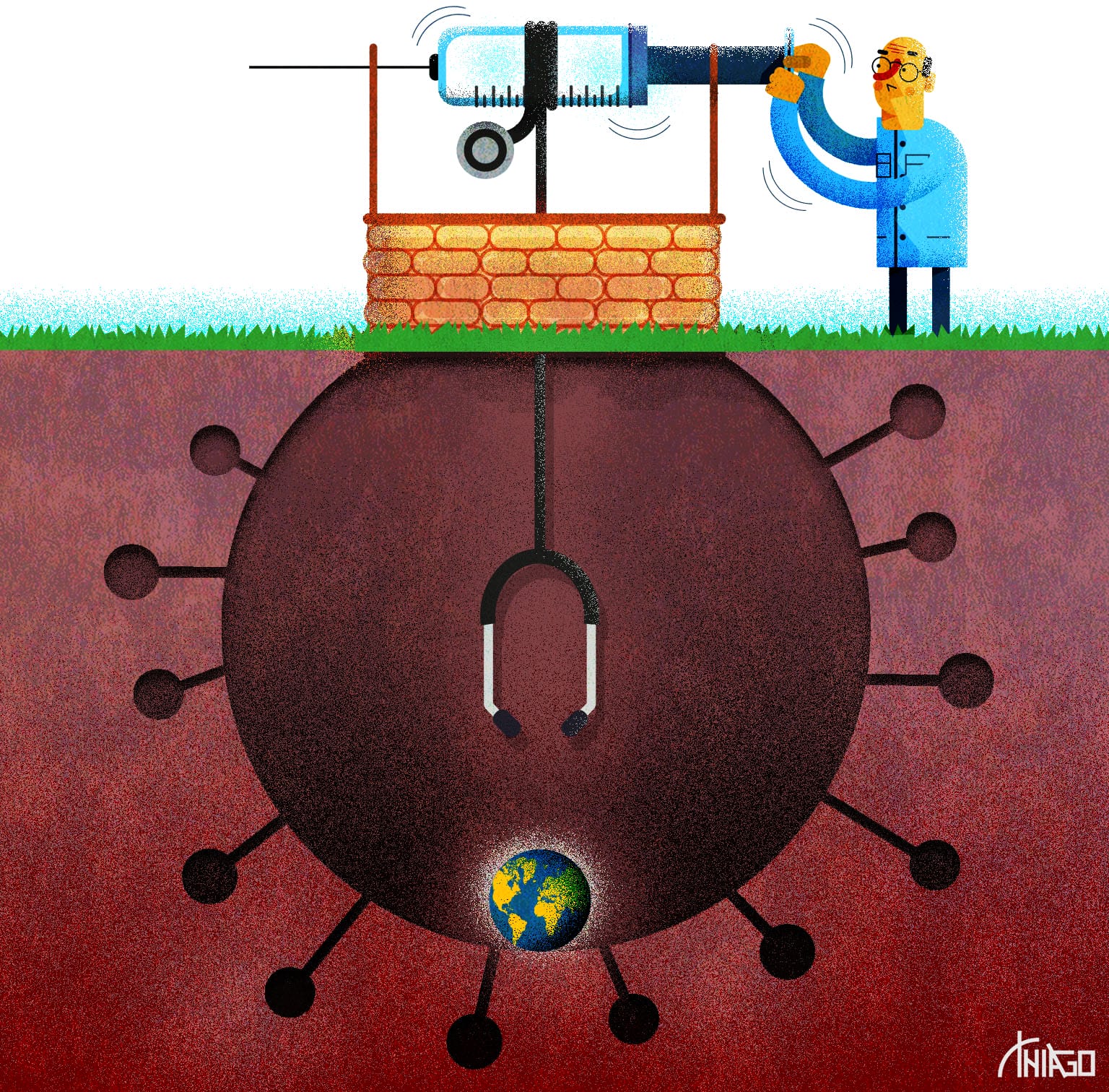
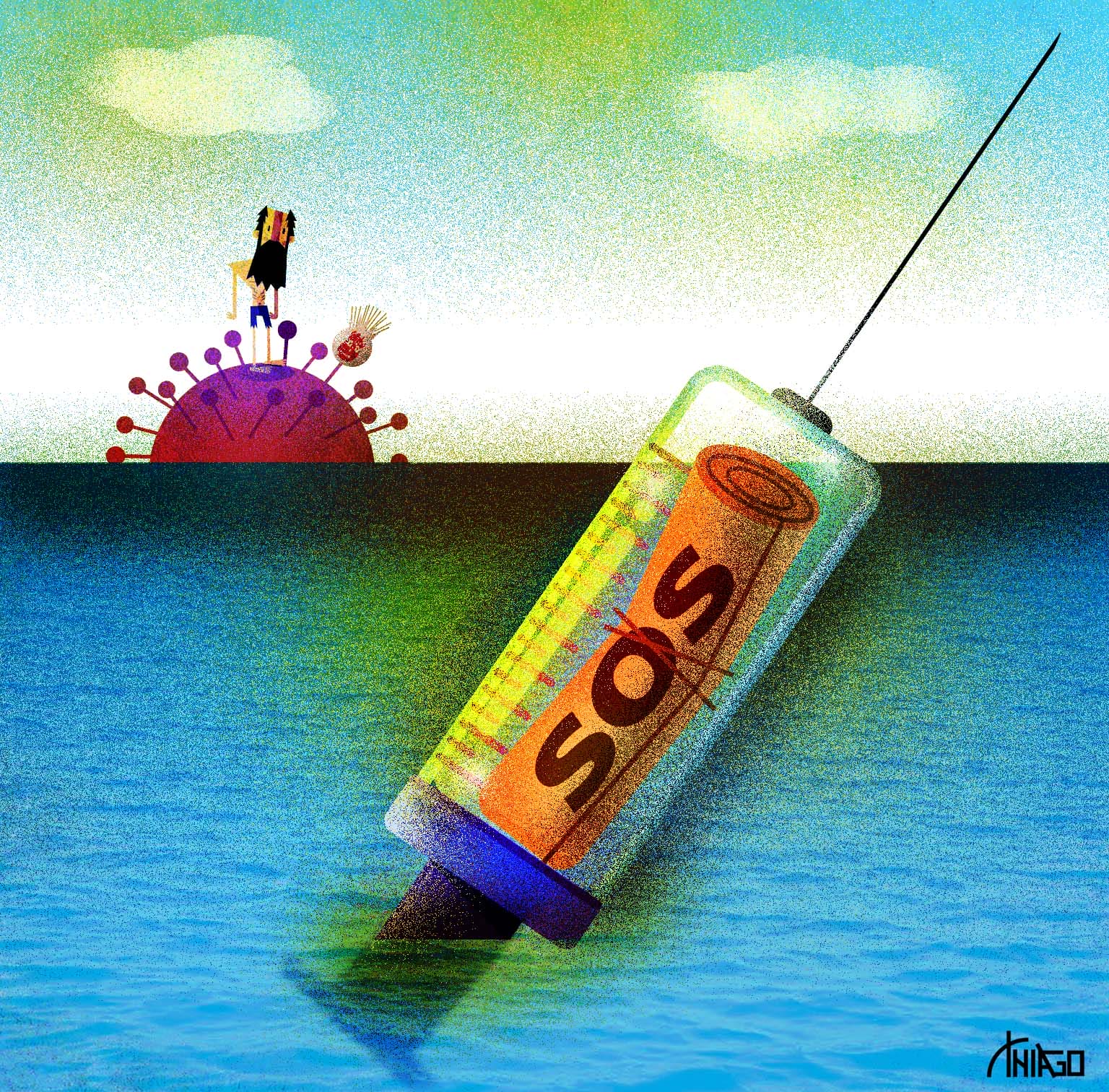
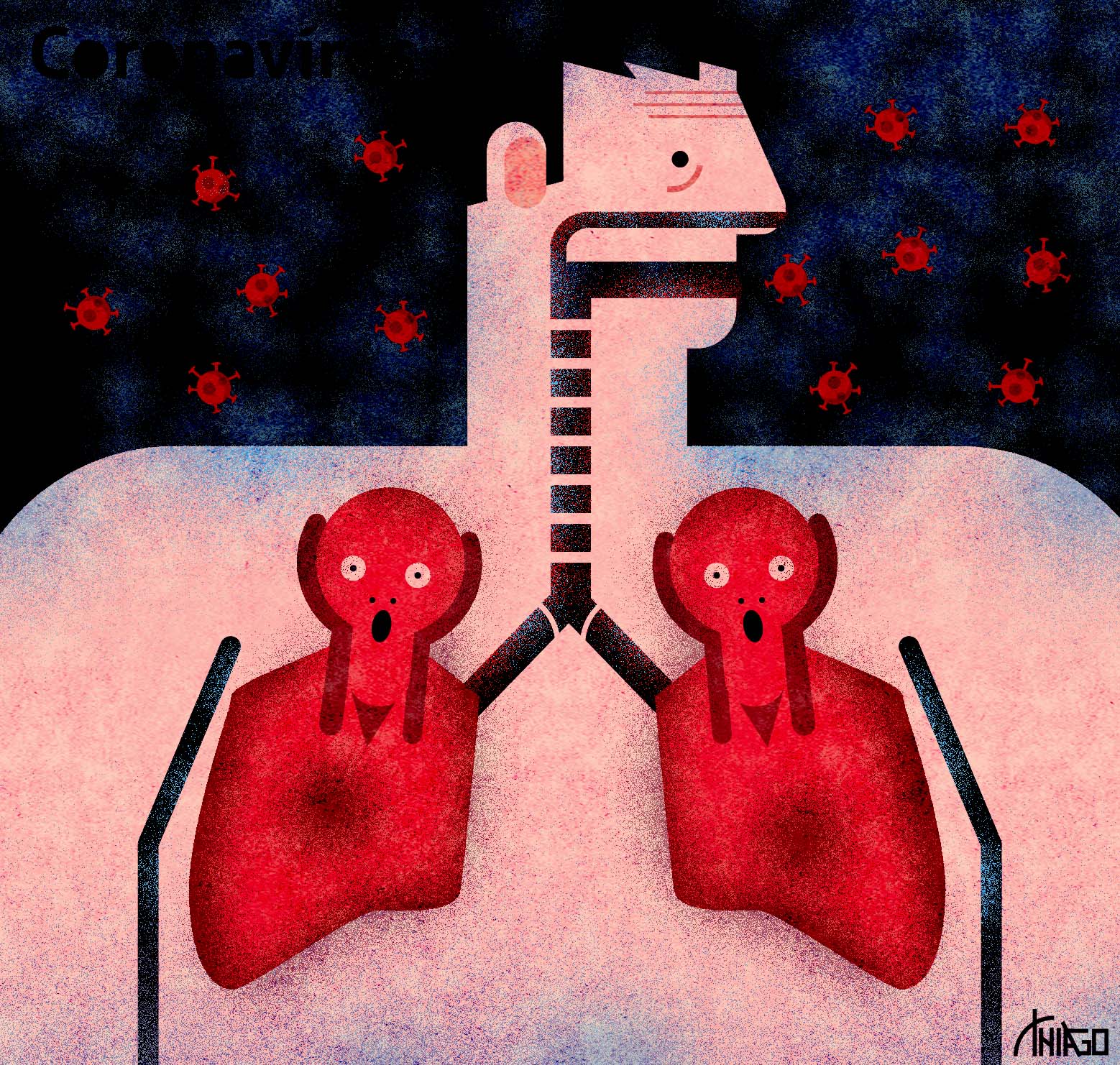
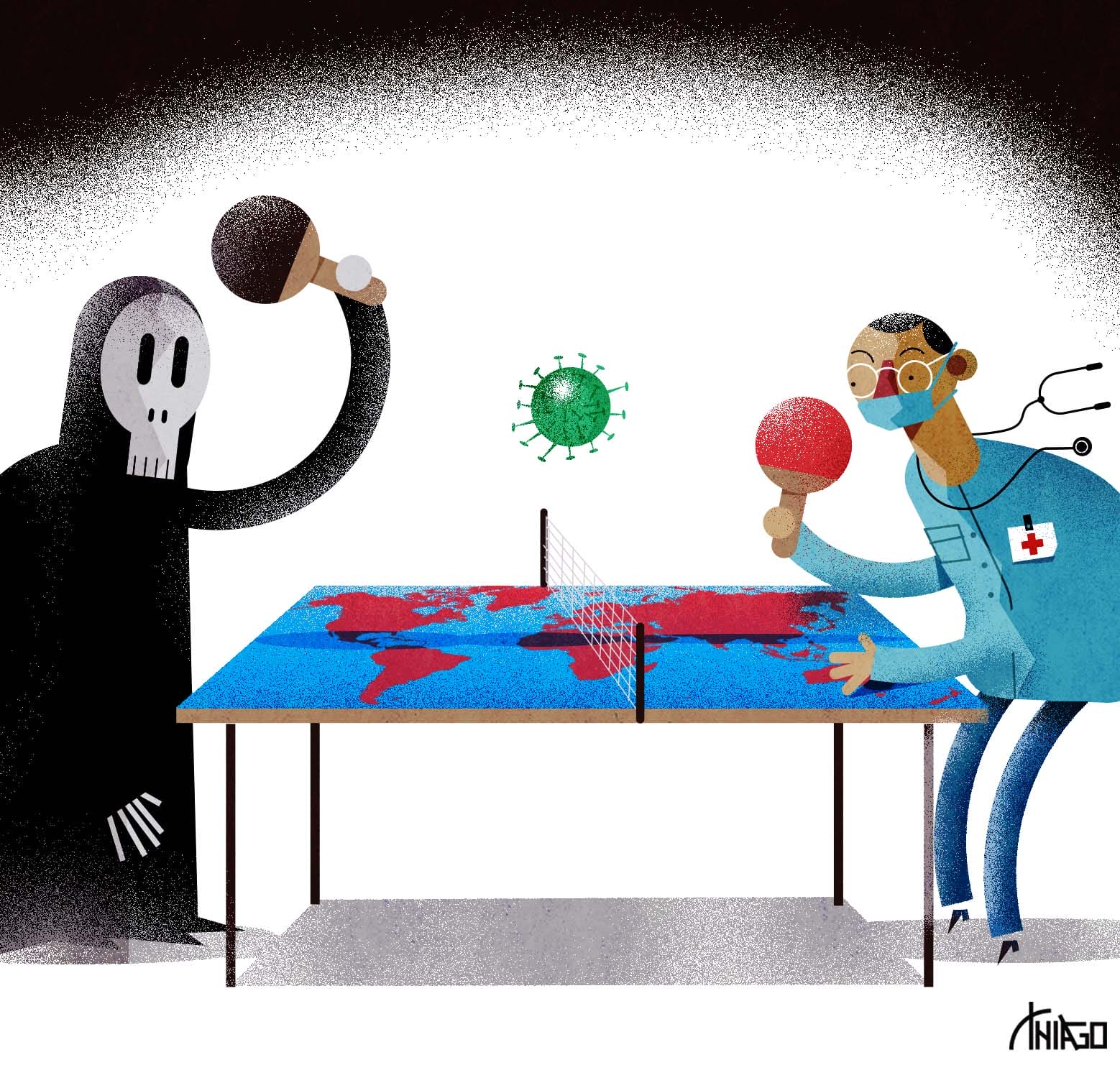
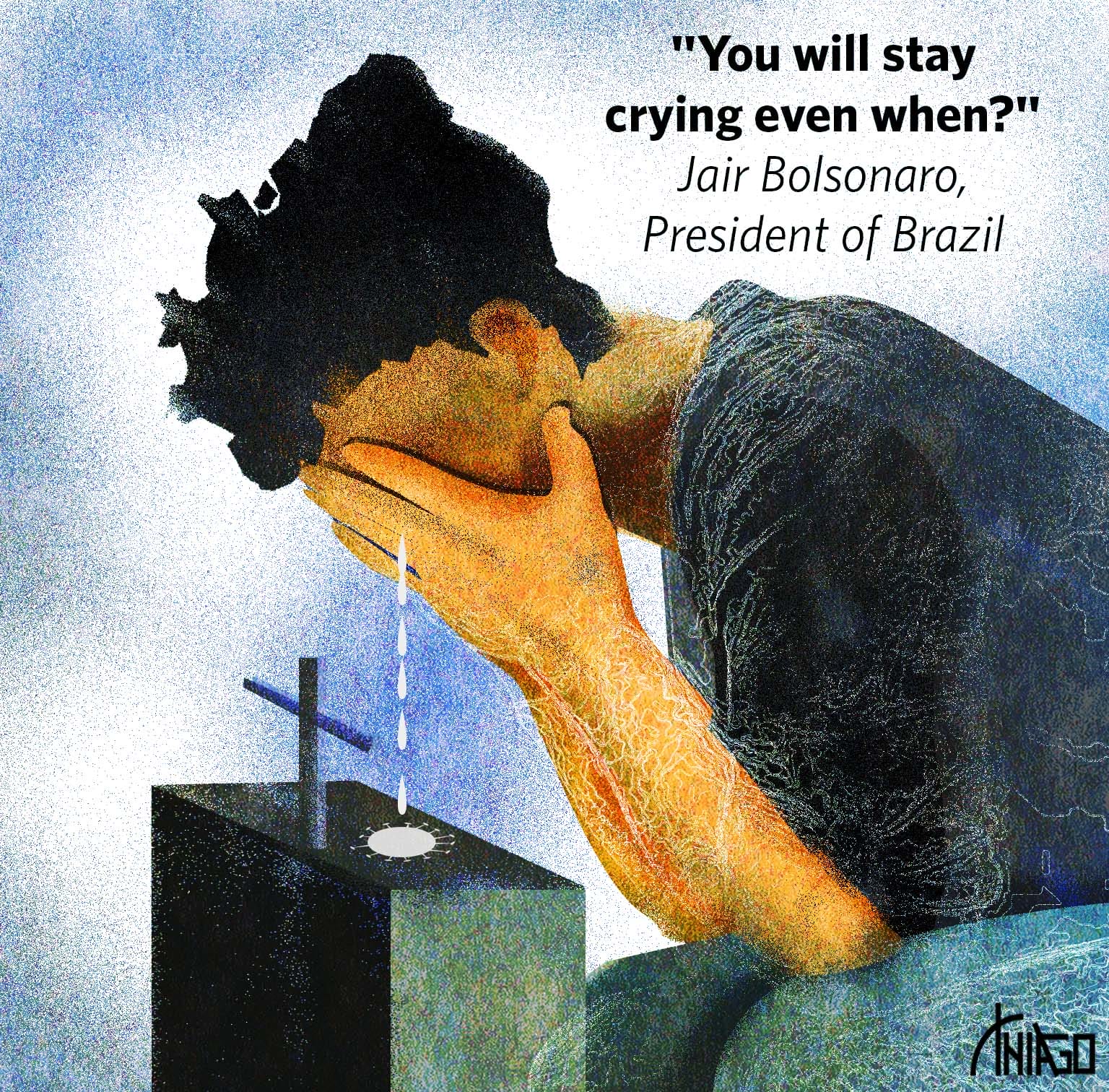
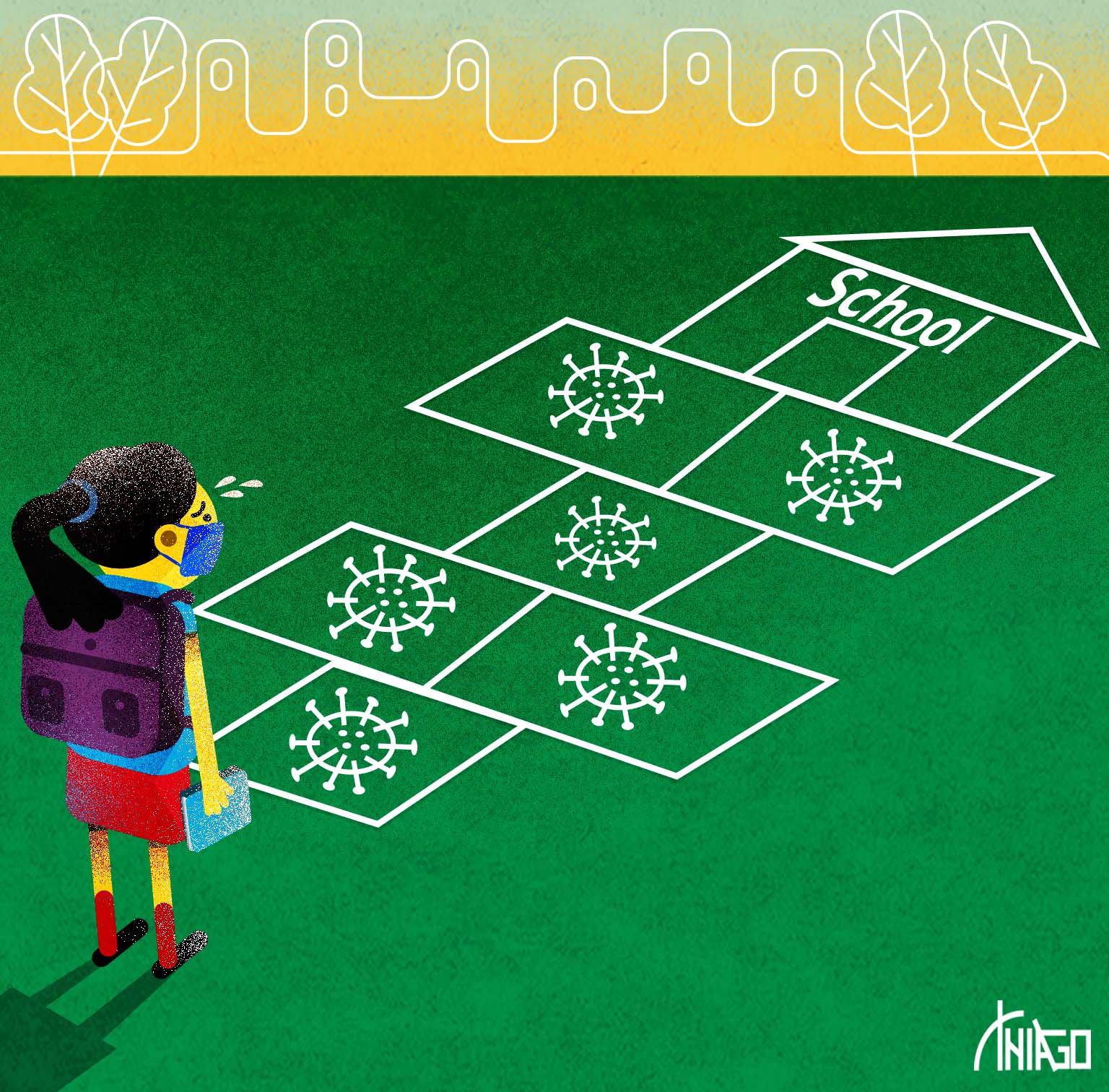
For me, in addition to technical issues, the difficulties are more focused on having to portray themes of great suffering and on injustices for the less fortunate, such as prejudices, violence, social inequalities, etc. The cartoonist needs to expose the insides of social ills, and this activity of diving into this ocean of pain, suffering and blood is a task that leaves us very moved and out of breath.
An Editorial Artist on Perseverance
Thiago Lucas with Emily Diamond
As the death toll from the pandemic mounted in Brazil, I wanted to make sure the International Pandemic Art Archives had work from Brazil. I happened upon the work of Thiago Lucas. This article came about through a series of email exchanges. –E.D.
I have been in the habit of drawing since I was a child. I remember drawing daily at home, at my grandparent’s house, and also at school. I made the drawings on paper, in sketchbooks and even on the wall. I used a pencil, pen and crayons. I remember that my first encounter with drawings of humor, caricatures and cartoons was in an art textbook that had a chapter on graphic art. Then a friend showed me a folder full of newspaper clippings with cartoons by artists from my hometown, Recife. It was love at first sight! Since that moment, I had a dream for my life—to become a cartoonist and illustrator. From then on I stopped drawing things like houses and landscapes, and dedicated myself entirely to graphic humor and editorial art. The need to make this art has always been to face the abandonment, inequality and abuse in Brazil, and also in the world.
At the age of 15, I joined ACAPE (Association of Cartoonists of Pernambuco), an organization that brought together renowned artists and beginners like me on a weekly basis. It was through ACAPE that I had the opportunity to do my first paid work as a cartoonist, made cartoons at events, and published for the first time in the Jornal do Commercio, in a section called, Games of Errors.
The concepts and ideas for the art sometimes suddenly appear, in other cases I do a study and analysis of events through reading on the topic, and then I use pencil and paper to write my reflections and sketch ideas. However, if I look closely, even those ideas that suddenly appeared to me are the result of an analysis and reflection that is already taking place in my brain. The editorial artist’s job is the constant observation and analysis of the objective and subjective reality of society, this incessant search for interpreting the political, economic and social aspects of the world is automatic in our daily lives. Doing the art can be cathartic.
The current pandemic caused by the coronavirus has been a kind of magnifying glass that made the injustices, social inequalities and abuses of political authorities more evident and visceral. The effects of the health crisis we are going through are very unequal. The poorest end up suffering even more, as they don’t have the same sanitary conditions and basic health care as a person who is richer. It’s a situation of great injustice. In addition, my country has a fascist President of the Republic in power, Bolsonaro, who is completely devoid of empathy and social sensitivity, dealing with public health issues with complete disregard.
In addition to specific public health issues, we face abuses of power by the Brazilian judiciary, which took sides in pursuing and revoking the political rights of former President Lula on the eve of a presidential election, in an evident attack on democratic institutions. We also had the impeachment of President Dilma Rousseff, which was a real horror show in the Brazilian parliament, where the power-hungry political class carried out a political coup by taking a democratically elected president out of power. We are going through a health and a democratic crisis.
For me, there are the technical issues of doing the art, but the greater difficulties are more concentrated on having to portray themes of great suffering and injustices for the less favored, such as prejudices, violence, and social inequalities. The editorial artist needs to expose the insides of social ills, and this activity of diving into this ocean of pain, suffering and blood is a task that leaves us very moved and breathless. In some moments I have also had some fears for safety, as in a work that I did portraying prejudice on the part of public security agents. I’m grateful for the support of my mother, aunt, father, grandparents and friends. They helped me realize my dream of speaking out through art. In the hardest moments, I try to put the social function of the artist first, to be aware that social injustices need to be denounced by art. I believe that a word that expresses well the exercise of the artist's role is perseverance, because we face daily difficulties, resistance, crises, censorship, and attacks. These make the perfect storm for our journey to be arduous and full of stones and thorns, but as time goes by our skin starts to become hard and resistant to the scratches and wounds.
Public health issues have always been the subject of some artists and cartoonists, we can see it in editorial art from past centuries. Public health, social justice and social inequality are related themes and they are the artist's raw materials. We cannot deny that when we face public health crises, such as epidemics and pandemics, the focus is more intensely on these issues, because public health crises brings with them other related issues, such as social injustices and political unrest, for example. In the end, our reality is a great kaleidoscope of multifaceted experiences and realities. As an example, the motivation for the work "Negligence" was the neglect of the Brazilian authorities in dealing with the coronavirus pandemic. In Manaus, in northern Brazil, patients died of suffocation due to lack of oxygen equipment, an enormous tragedy.
I have a constant concern and anguish about the future of the arts and artists. This is because unfortunately we live in a society that has many individuals from the most diverse social spheres who despise art and come to fight it. This is expressed in the persecution of artists, attacks on freedom of expression, and lack of government aid to artistic actions. There is also the drop in the number of readers of books, newspapers and magazines, leading to a drop in the number of opportunities and vacancies in the labor market. In short, this is a set of consequences that generate a hostile environment for artistic work.
We live in dark times, where culture and democracy are constantly attacked. In this context, art acts as one of the strongholds of resistance against authoritarianism that contaminates our society. Editorial art and caricatures are artistic expressions that can use humor as an instrument of criticism to contest the reality promoted by those in power, whether that power is political, economic, social or cultural. So let's move forward, with courage and perseverance, cultivating a critical and engaged art.
Love this illustrations!